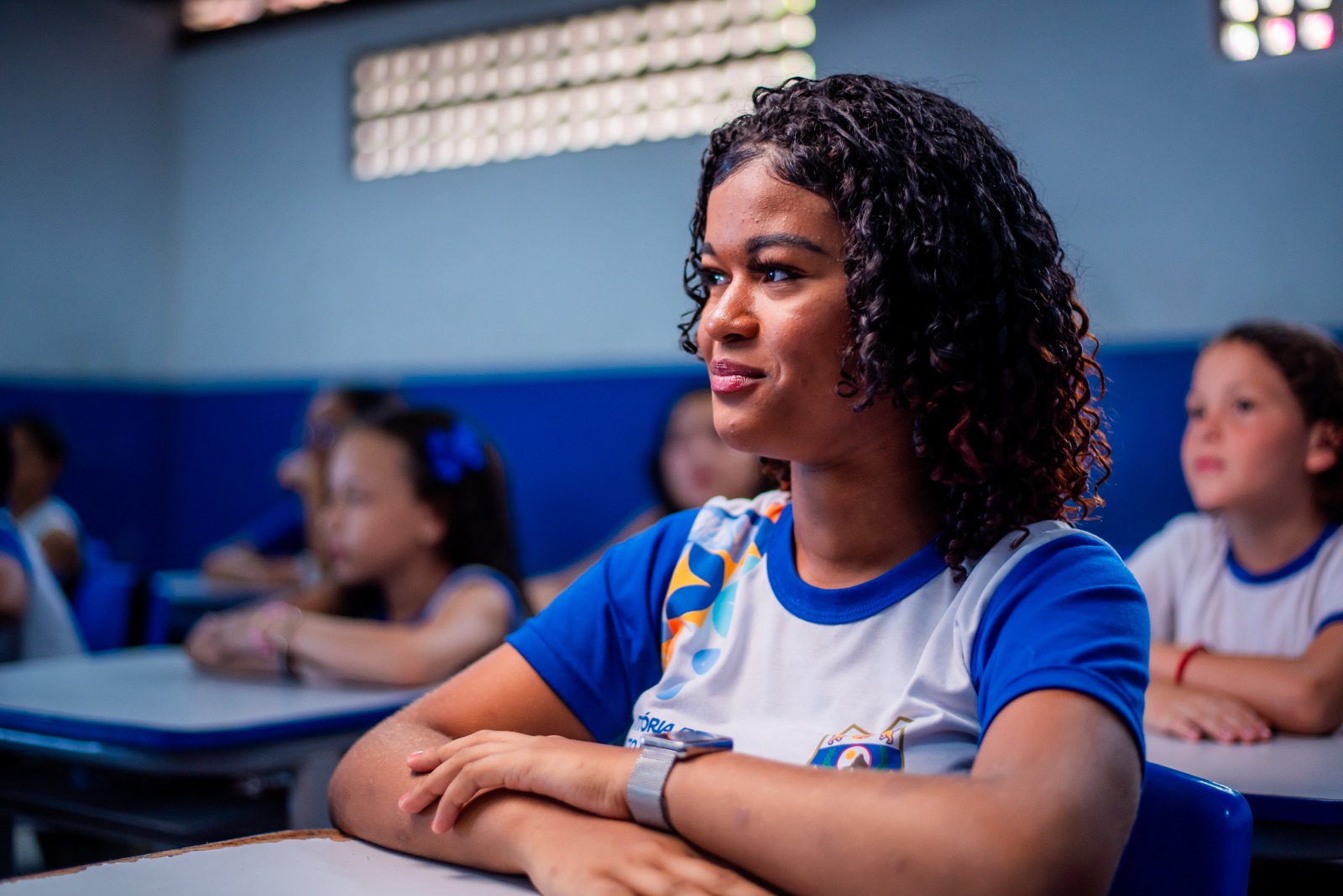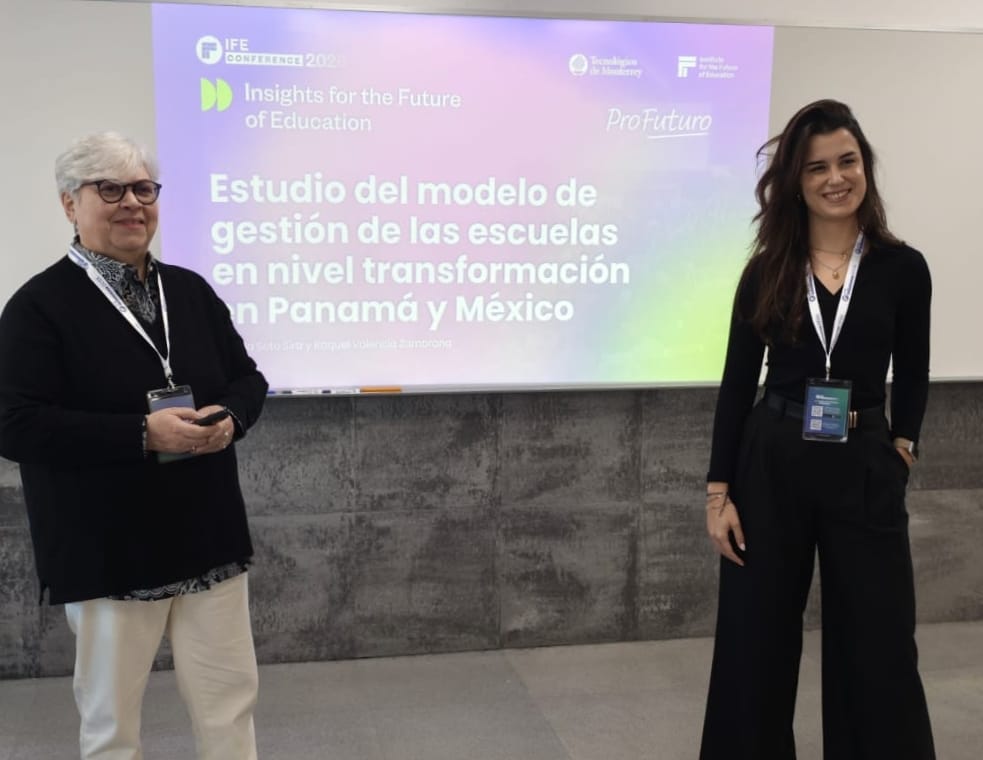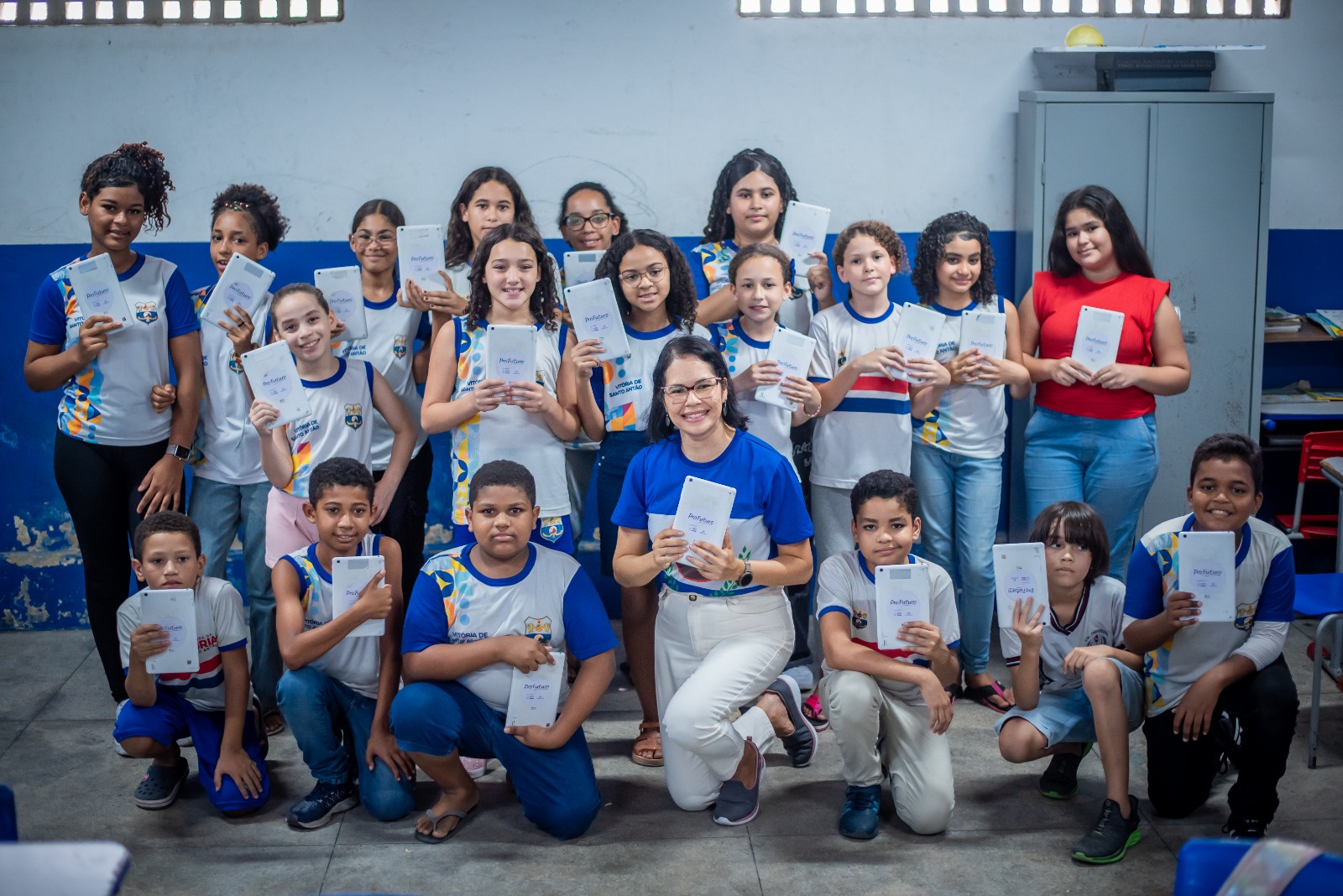According to UNHCR, 42% of displaced people are minors and an estimated 290,000 to 340,000 were born under refugee situation between 2018 and 2020. On this #RefugeeDay 2022, we need to remember that, even in humanitarian crisis environments, when it is more urgent to meet basic needs such as food or psychosocial and mental support, education of the youngest cannot be postponed.
Aware of this problem, in 2018 ProFuturo adapted its education proposal to promote access to quality well-rounded education for school-age children living in humanitarian contexts. This proposal combines educational resources, accessible through a digital learning platform, professional development itineraries for teachers, educational assistance and technical support, and an ongoing monitoring and evaluation system to measure and assess the impact of its implementation in each school.
But this intervention model in humanitarian contexts goes a step further. ProFuturo helps cover other aspects essential to ensure quality education: psychosocial support and access to a safe learning space, under the global framework for refugee education and the minimum standards defined by the Inter-Agency Network for Education in Emergencies (INEE).
Our work in humanitarian contexts
Since 2018 and in collaboration with different organisations, governments, education experts and other institutions, we have carried out educational innovation projects in various refugee camps and informal settlements in Lebanon, Jordan, Malawi, Rwanda, Tanzania and Nigeria. In these five years we have reached 32,580 children displaced from their homes in Africa and Asia and our goal for 2022 is to reach 60,000 beneficiary students in humanitarian contexts.
In each of these projects and countries, ProFuturo invests great effort in providing training, coaching and ongoing support to teachers. So far, the programme has trained 702 refugee teachers and expects to train around 180 more this year. “To provide psychosocial training to teachers so that they can understand and care for those students who need it most, helping them develop their capacity for adaptation or resilience is key and is one of the things we work on with our partners on site,” says María Lacadena, responsible for ProFuturo’s intervention in humanitarian contexts in Africa and Asia.
Where is our educational model implemented?
ProFuturo collaborates on site with other organisations. In Lebanon, we are working with the Kayany Foundation and the American University of Beirut (AUB) on a project that this year has expanded to 14 new schools in the Bekaa Valley.
Thanks to an agreement with the UNHCR Spanish Committee, this intervention model also reached six Burundian refugee camps in Rwanda in 2021. Cooperation has been extended this year to Nigeria and Zimbabwe, where the programme is being implemented.
In Tanzania, in partnership with Save the Children, our programme is also in eight primary schools and two idea box centres (multimedia schools designed to remove physical learning barriers in humanitarian crisis contexts) in the Nduta and Nyarugusu camps of the Kigoma region.
In February, we renewed our agreement with Mensajeros de la Paz to bring the programme to a new school in Amman, Jordan, for 320 Iraqi students. In Malawi, together with the Jesuit Refugee Service (JRS) and Entreculturas (Spanish Jesuit NGO), we are in two schools in the Dzaleka refugee camp, near the capital city.






